In last month's post, I promised that 2019 would be my Year of Romance (#YOR) in Fantasy fiction (#RIFF).
To begin, though, I 'm going to feature what is in many ways the least romantic story in Fantasy, The Lord Of The Rings (LoTR) by JRR Tolkien.
The reason I want to start with LoTR is because it's so hugely influential, particularly in the epic fantasy subgenre. And yet it's also a story in which romance is almost entirely missing-in-action—a trend that has come to characterize the epic fantasy subgenre as a whole.
(Although recent years have seen a shift in this respect, with books like NK Jemisin's The Hundred Thousand Kingdoms having a strong romantic element.)
For a long time, though, epic fantasy has been the purview of major world events, conflict, and war—a trifecta in which love and romance haven't had much of a look in.
At least in part, I believe this is because LoTR is the yardstick against which subsequent epic fantasy has been measured. If you read on, I believe you may see why. :-)
Aragorn and Arwen: Love As Loss
LoTR contains three "main" romances, although only one (Eowyn and Faramir) is in any way integral to the story. Arguably, it's not the most important relationship, though. That is, or "should" be the love between Aragorn, the leader of an old, lost kingdom in the north of the world, and also heir to the throne of Gondor, in the south.
 |
| Aragorn in the LoTR films |
Or so you think, if you don't delve into the Appendices. If you do, however, you'll realize that mortality ends up being a bitter cup for Arwen, one she must drink to the lees, ending up living alone long after Aragorn has died and all her kindred have gone. Of course, this will only matter if, as a reader, you care about Arwen.
 |
| Arwen in the LoTR films |
Except that the great and amazing love story has been signaled by pretty much two prior incidents: in Book One (The Fellowship Of the Ring) when the hobbit, Frodo, sees Aragorn standing by Arwen's chair in the elvish community of Rivendell; and at the beginning of Book Three (The Return Of The King) when the northern rangers bring Aragorn a banner that Arwen has made for him.
 |
| Arwen & Aragorn: the film ending |
And the subtext, particularly when reading the appendices, is that love between a man and a woman, and particularly its consummation, exacts a high price, including considerable loss and grief, for the woman.
The most intriguing thing about the romance between Aragorn and Arwen, though, is it's absence from the story, when (again) arguably romance, love, and relationship are central to the human condition.
Eowyn and Aragorn; Eowyn and Faramir: The Schoolgirl Crush and Love As Consolation Prize
 |
| Eowyn - not a bit part |
 |
| Eowyn & Faramir |
In the book, too, their romance comes across as a love between equals, and as Faramir has been established as a cool character in his own right, their romance does not feel like a "consolation prize" for Eowyn. In the film, however, possibly because so much of the story was truncated and also because the character of Faramir was not so well developed, it did feel a little "consolation prize"-ish.
So, the schoolgirl crush and unrequited love for our heroine, but a truer and more equal love at the end—so there is some romantic light, just a little, at the end of the LoTR tunnel. ;-)
Sam Gamgee and Rosie Cotton: The Boy and Girl Next Door and Happy Ever After
 |
| Sam Gamgee on the Ring quest |
At the end, he returns to the Shire, and Rosie to the pages of the book, so they can finally get married and live happily ever after. Arguably, Rosie has remained steadfast in his absence, although we, as readers, don't actually know this.
 |
| Sam & Rosie: the happy return |
Suffice it to say that Sam and Rosie seem to see the matter in poetry, rather than prose, and get married and—as in inferred in the book and recorded in the Appendices—live long and happily ever after.
Conclusion:
Aragorn and Arwen, Eowyn and Faramir, Sam and Rosie: unarguably, love makes an appearance in The Lord Of The Rings. And Eowyn and Faramir's story does qualify as a romantic episode. Yet given the importance of The Lord Of The Rings in shaping contemporary epic fantasy, I believe it's not surprising that until very recently epic was perceived as a subgenre that eschewed romance.
Given its importance to Fantasy literature overall, and also because I am currently writing an epic fantasy series myself, I felt The Lord Of The Rings effect should not be overlooked in my Year of Romance in Fantasy. Next month, though, I'll try and pick a book where love is far closer to the core of what makes the story tick.
Until then, read on with a #RIFF and a #YOR in your year. :-)
---
Helen Lowe is a novelist, poet, and blogger whose first novel, Thornspell (Knopf), was published to critical praise in 2008. Her second, The Heir of Night (The Wall Of Night Series, Book One) won the Gemmell Morningstar Award 2012. The sequel, The Gathering Of The Lost, was shortlisted for the Gemmell Legend Award in 2013. Daughter Of Blood, (The Wall Of Night, Book Three) is Helen's most recent book and she is currently working on the fourth and final novel in The Wall Of Night series. Helen posts regularly on her “…on Anything, Really” blog and is also on Twitter: @helenl0we




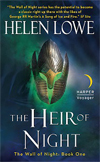
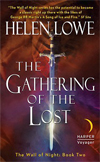
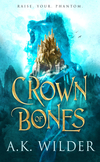
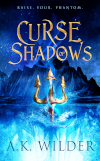
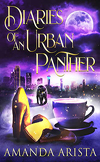
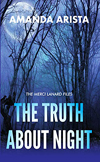

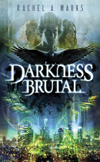
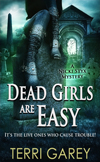
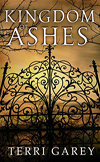
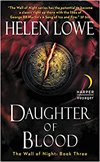
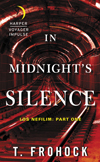
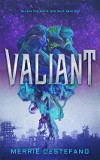
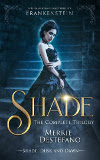

No comments:
Post a Comment